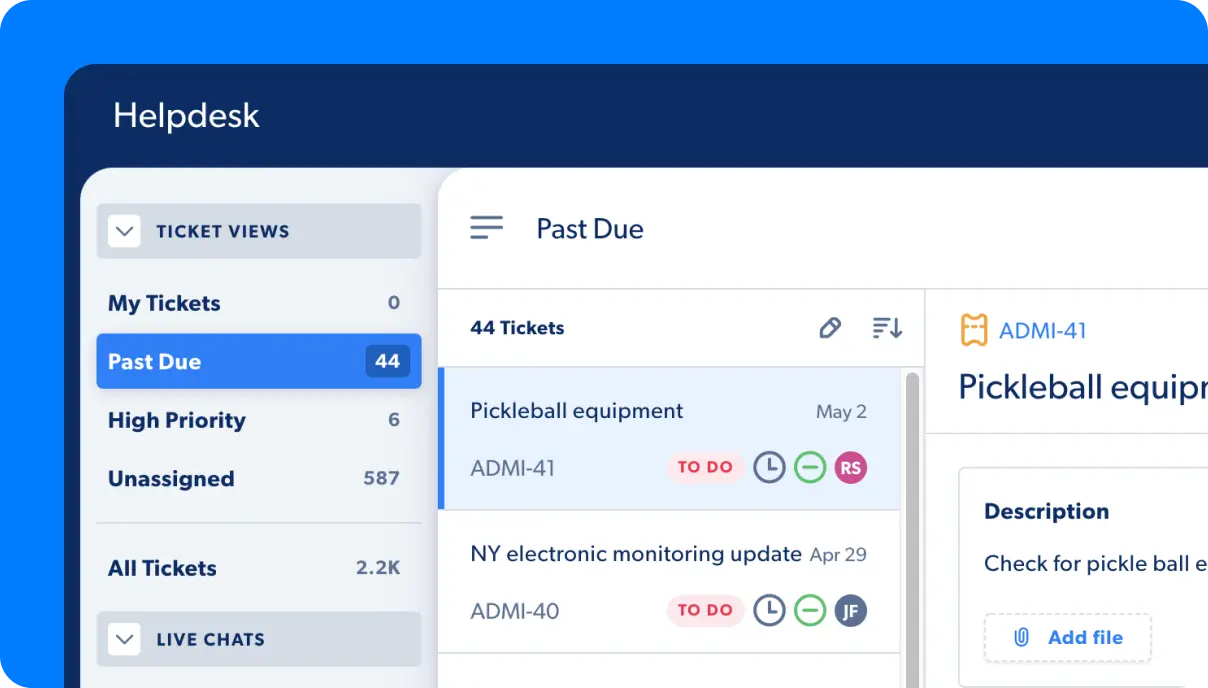Business process automation (BPA) software is a powerful tool many businesses use to streamline their processes and increase efficiency. With the right automation tools, it’s possible to simplify mundane tasks that take up valuable time – freeing you up to focus on what matters most. In this article, we’ll look at the best ten business process automation software available to help you make your business as efficient and successful as possible. Let’s dive right in!

1. Capacity
Capacity is the leading business process automation software on the market. This cloud-based platform offers a wide range of automation tools that will help you streamline your processes. With Capacity, you can easily create automated workflows, set up triggers and alerts, and create custom forms without needing a developer.

Pros: Easily integrates with popular tools such as Salesforce, Slack, and Microsoft Teams; pre-made templates; comprehensive knowledge base; cutting-edge AI tech.
Cons: The user interface can be challenging to navigate for new users. However, plenty of tutorials and support documents are available to help make the learning process smoother.
Price: Start for free today
2. Ayehu
This tool offers a suite of automation components, including ready-to-use workflows and an AI-powered orchestration engine for businesses seeking to set up automated processes.
Pros: User-friendly dashboard; Scalable pricing plans; Comprehensive automation features; Robust security.
Cons: Needs a bit of manual work to configure workflows; Limited third-party integrations.
Price: Unavailable
3. UiPath
This software is designed for companies that want to develop their process automation solutions without the need for coding or scripting knowledge.
Pros: Easy drag-and-drop interface; Flexible deployment options; Powerful AI capabilities
Cons: Requires technical expertise to set up complex processes; Expensive compared to competitor products.
Price: Unavailable
4. Integrify
Businesses looking for a platform that provides comprehensive process automation, unified workflow management, and visibility into operations will find what they want in Integrify.
Pros: Highly customizable; Robust analytics capabilities; Great customer support.
Cons: Businesses need the technical expertise to use it effectively; Limited third-party integration options exist.
Price: Unavailable
5. Microsoft Power Automate
Microsoft Power Automate is a cloud-based automation platform that offers businesses an easy way to create automated processes and workflows.
Pros: Intuitive user experience; Deep integration with Office 365 applications; Comprehensive reporting features.
Cons: Limited security controls available for businesses seeking comprehensive data protection solutions; Expensive compared to other platforms.
Price: $100 per flow/month, a minimum of five flows

6. Nintex Workflow Cloud
Businesses looking for an easy-to-use automation platform that users can use across multiple devices will find what they want in Nintex Workflow Cloud.
Pros: Easy-to-use interface; Powerful automation capabilities; Robust mobile app for on-the-go access
Cons: Businesses need technical knowledge to set up complex processes; Limited third-party integrations; One of the most expensive platforms compared to other competitors.
Price: $4,166/month starting
7. K2 Workflow Platform
This comprehensive solution provides a wide range of automation and workflow tools for businesses seeking an enterprise-level process automation system.
Pros: Deep integration with other Microsoft products; Powerful customization options; Robust analytics capabilities
Cons: Needs technical expertise to set up complex workflows; businesses must purchase additional components for full functionality.
Price: Unavailable
8. BluAge Business Process Automation
Businesses looking for an affordable yet comprehensive automation solution will appreciate the features of BluAge business process automation.
Pros: Intuitive user experience; Easy to set up processes; Comprehensive reporting capabilities.
Cons: Businesses need technical expertise to get the most out of it; Limited third-party integrations.
Price: Unavailable
9. Kissflow BPA
This cloud-based system provides flexible and easy-to-use tools for businesses looking for a process automation platform that can be used on multiple devices.
Pros: Flexible deployment options; Ability to customize processes easily; Robust mobile app with powerful analytics capabilities.
Cons: Limited third-party integration options; Businesses need technical knowledge to set up complex workflows.
Price: $2,000/month starting
10. Appian Business Process Automation Software
This process automation platform provides comprehensive tools and an intuitive user experience.
Pros: Comprehensive feature set; Easy to use drag-and-drop interface; Flexible deployment options; Robust analytics capabilities.
Cons: Businesses need technical expertise to set up complex processes; they are Expensive compared to competitors.
Price: Unavailable
Summary
Overall, business process automation software can help businesses automate processes and streamline operations. Companies should carefully consider their needs when selecting an automation tool, as each offers its own pros and cons. With the right automation tools, businesses can save time and resources while increasing efficiency. Companies should select the automation solution that best fits their needs and requirements.
Capacity provides businesses with an easy-to-use business process automation platform that simplifies the process of creating automated workflows. With Capacity, businesses can quickly set up, monitor and optimize their business processes, saving them time and money while increasing efficiency.

Capacity’s automation tools are designed to be accessible to everyone, and its intuitive user experience makes it easy to use for even the most technically challenged of businesses.
Automate over 90% of repetitive workflows with Capacity! Try for free today, or request a personalized demo.













































